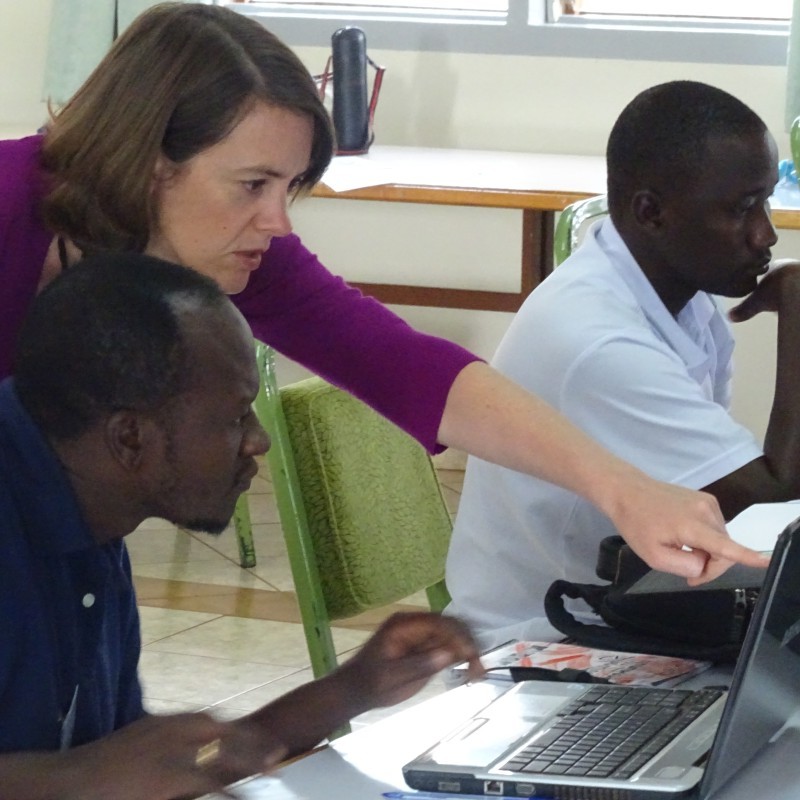
One thing that I love about our work is that there are so many nationals involved, who share the vision of helping people from their own language groups have access to God’s word in a language that they can understand. But in order for those nationals to succeed, they need to have tools, in the form of translation and linguistic consultants, computer support, and training.
At the end of May I had the opportunity to spend a week in Kenya, observing and assisting with an English workshop there. The students were all part of translation and literacy teams for their own mother-tongue languages. They are staying in Kenya to attend classes in translation and literacy skills, which take place for two months at a time over the course of several summers. As the university-level classes are all taught in English, and English is at least a third language for these men and women, the program is preceded by a two-week English workshop that is intended to provide a much-needed boost before the students begin their other classes.
 The need for English training comes as a surprise to many people when they think of Bible translation. But more and more, as nationals are filling roles that have traditionally been filled only by foreigners from western countries, the need for increased English skills has become crucial to the work. Both of the other two teachers at the English workshop first started working with our organization in other areas, but began teaching English as a result of seeing a great need among the national translators they worked with.
The need for English training comes as a surprise to many people when they think of Bible translation. But more and more, as nationals are filling roles that have traditionally been filled only by foreigners from western countries, the need for increased English skills has become crucial to the work. Both of the other two teachers at the English workshop first started working with our organization in other areas, but began teaching English as a result of seeing a great need among the national translators they worked with.
My recent time in Kenya was extremely helpful, both in terms of connecting with others in the region that are doing English training, and in beginning to prepare for the English training I will start doing in the Hilltop as soon as our kids go back to school. We have many colleagues that need increased English skills to be more successful in their work. I can’t wait to get started!
